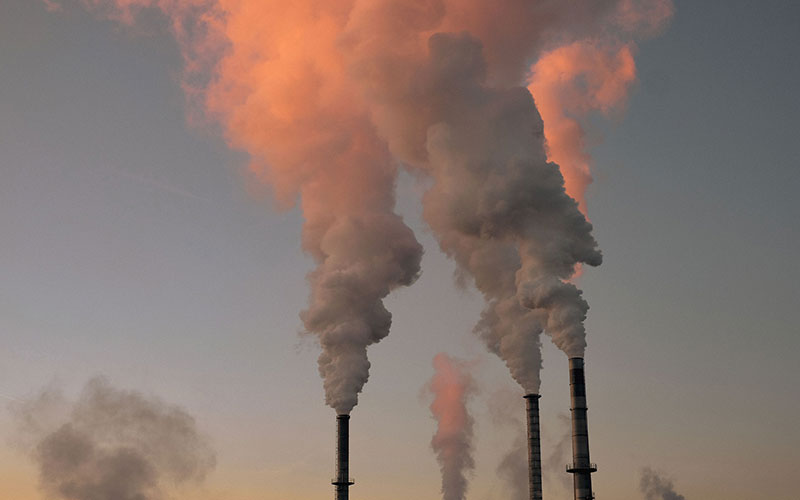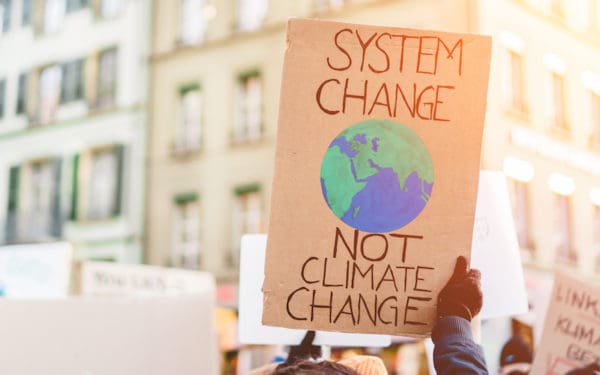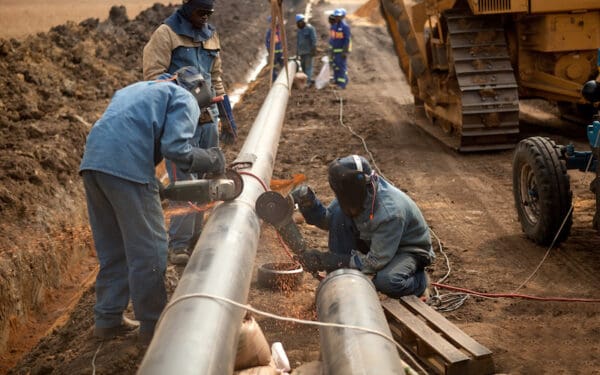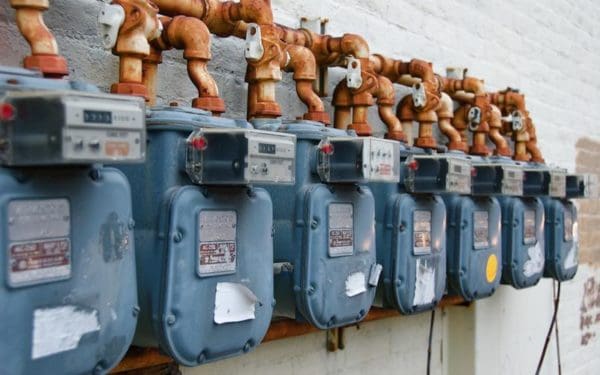
It's time for New England to ditch fossil fuels like gas.
Remember that long-ago romantic flame that fizzled – that spark that didn’t pan out? One morning you woke up without the rose-colored glasses and realized the relationship was a dead end. It was not sustainable, it didn’t meet your needs, and you were destined for something much better.
That describes New England’s relationship with dirty gas. Once considered part of a lower-carbon future, this volatile, dangerous, and polluting fossil fuel now needs to be shown the door. Thankfully, as New England’s growing investment in cleaner energy ramps up, this transition is becoming easier. But standing in its way are the last gasps of the dirty fossil fuel industry. And they are not going quietly.
New England Is (Trying) to Ditch Fossil Fuels
All New England states have policies or goals in place to drastically curb harmful climate pollution. In some states these are legal requirements that are resulting in new contracts for and new supplies of cleaner power. Last year alone, Massachusetts authorized the purchase of more than 3,600 megawatts of clean energy – enough to power nearly 400,000 homes – over the next decade.
Dirty Gas Keeps Rearing Its Ugly Head
But even as clean energy progresses, climate-damaging gas is seeking to tighten its grip on the region. In New Hampshire, for example, Liberty Utilities has proposed a costly, major new pipeline along with a massive LNG storage facility. The gas company would saddle its customers with the bills for this monstrosity for decades. Climate change increases the risk that these and other fossil fuel investments will be left stranded – built but not used, with families and businesses in the region paying for them long after we have shifted to cleaner options.
And New Hampshire isn’t the only state with fossil fuel projects on the table. In Maine, new contracts were approved that expanded gas supply, increasing Mainer’s reliance on an energy source that is wreaking havoc on our climate. In Vermont, a state where harmful climate emissions have increased over the last decade, a massive expansion of a fracked gas pipeline left destruction in its wake, permanently damaging farmland and natural areas.
But pipelines don’t just threaten our climate and natural resources, they harm people. In Massachusetts, gas explosions last year killed an 18-year-old, injured many more, and caused fires damaging more than 40 homes. Our reliance on fracked gas is dangerous now and dangerous to our future. And the harms caused by gas are even more insidious, with fumes and pollution from gas increasing asthma risk and heart disease.
Regional Grid Operator Buys Into Big Gas’s Playbook
It is not just the dirty gas companies that are tightening their grip. The operator of the New England electricity grid, ISO-New England, keeps doubling down on gas even in the face of state action to curb emissions. Instead of operating the grid and power markets in line with the region’s climate goals, the grid operator intentionally ignores them and marches forward in lock step with the gas industry. Based on faulty assumptions, it reinforces scare tactics developed by Big Gas.
ISO-New England’s gas-friendly analysis deepens the region’s reliance on fracked gas. This makes it even harder for states to lower their emissions and avoid climate disaster. In November, seven of the region’s U.S. Senators, including Elizabeth Warren and Bernie Sanders, called on the ISO to operate consistent with the climate policies of the region’s states where 80% of its electricity is consumed. They asked the grid operator to join efforts to tackle the climate crisis and help achieve the states’ ambitious goals.
The grid operator responded by continuing its historical coddling of fossil fuel polluters. It blindly showered itself with unwarranted praise, touting a comparison to the most polluting regions of the country. Being better than the worst is not good enough.
To Tackle the Climate Crisis, New England Must Leave Dirty Gas Behind
Getting serious about climate change means getting serious about our gas use. It means all of us working together to build a clean energy future that doesn’t require the expensive and polluting buildout of more fracked gas. We don’t need it. And we can’t afford it. The legacy we leave for future generations must be one that sustains life and uplifts the communities where we live. We shouldn’t saddle our children and grandchildren with a toxic, expensive heritage of pollution.
The first step is to recognize that dirty gas is part of the problem, not part of the solution. With only a few years left to slash emissions to prevent catastrophic climate impacts, we are past time to even consider expanding our gas use.
The next step is to stop the buildout of new pipelines and other facilities that yoke our region to even greater reliance on dirty gas. Long-term, expensive, and polluting fracked gas facilities line the pockets of fossil fuel investors while leaving the rest of us paying for this unsavory future and the climate catastrophe it leaves behind.
At the same time, we must double down on our clean energy future by replacing current gas and oil use with cleaner heat pumps, solar power, and wind energy. Cleaner local power helps our communities and lets us all breathe easier. The past decade has shown that this is possible. It will take work, but as more communities move toward zero emissions and find alternatives to fossil fuels, our region’s policies and investments need to match their resolve.
New England is destined for a clean energy future. Getting there means getting off of dirty, fracked gas and keeping our eyes on the cleaner options that are right in front of us.
(An earlier version of this post ran in December 2019)




